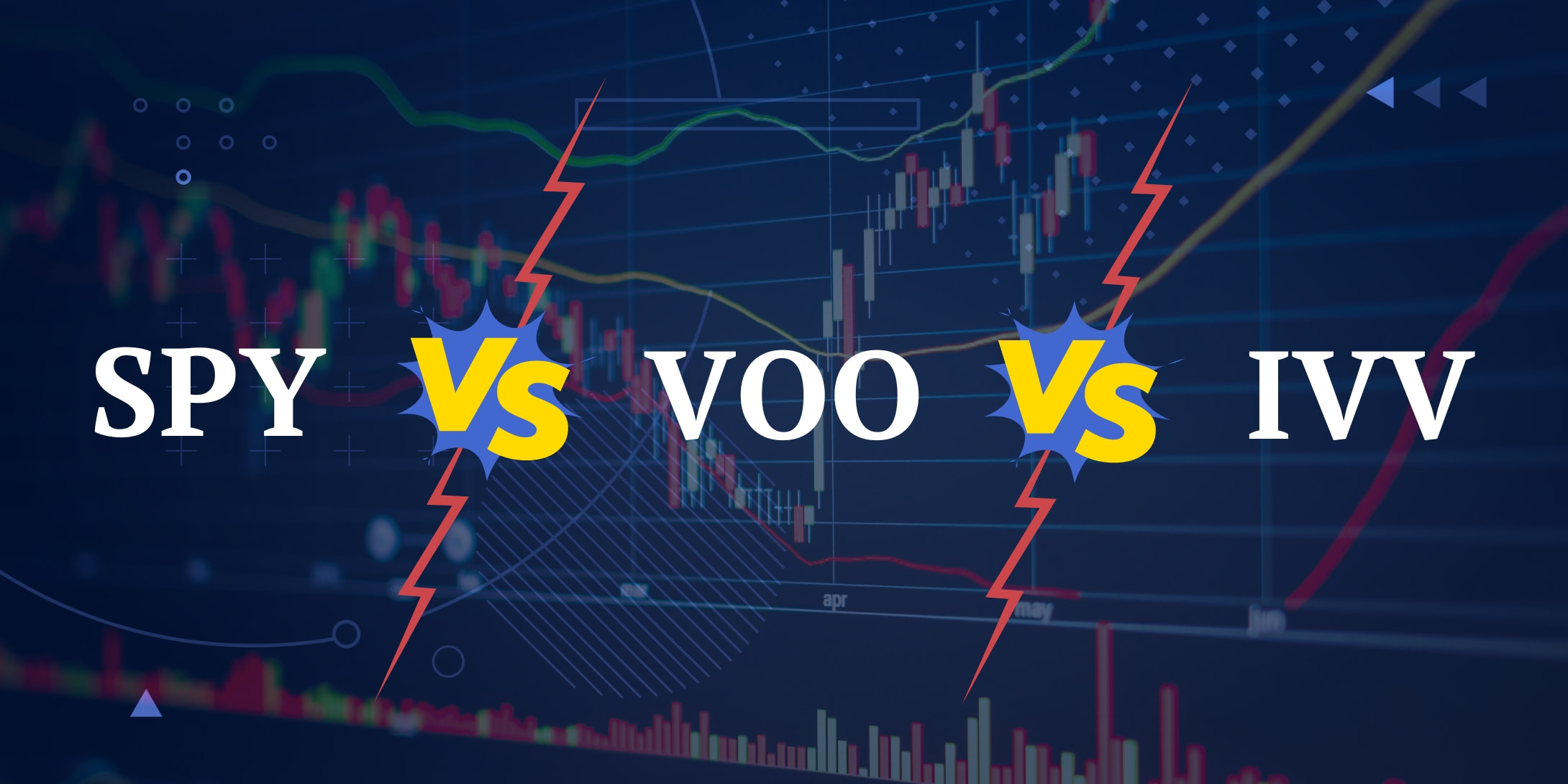
[ad_1]
SPY vs. VOO vs. IVV: a faceoff between three giant, well-liked index funds, all monitoring the S&P 500. However what’s the distinction if all of them observe the identical index? And how are you going to resolve which is greatest for you?
Let’s begin with the fundamentals.
SPY vs VOO vs IVV: By the Numbers


| SPY | VOO | IVV | |
|---|---|---|---|
| Full Identify | SPDR S&P 500 ETF Belief | Vanguard S&P 500 ETF | iShares Core S&P 500 ETF |
| Index Tracked | S&P 500 Index | S&P 500 Index | S&P 500 Index |
| Property Underneath Administration* | $403.3 billion | $339.7 billion | $352.1 billion |
| Common Every day Quantity (shares) | 10,989,786 (30-day common) | 4,089,646 (50 day common) | 4,627,769 (30-day common) |
| Variety of Holdings | 503 | 507 | 507 |
| Expense Ratio | 0.0945% | 0.03% | 0.03% |
| Dividend Yield* | 1.61% | 1.56% | 1.58% |
| Issuer | State Road World Advisors SPDR | Vanguard | iShares / Blackrock |
* As of October. 2023
5-12 months Efficiency
SPY vs VOO vs IVV: Overview
All three observe the identical S&P 500 index, which consists of 500 of the most important publicly traded firms within the US. Meaning the three funds might be holding primarily the identical shares in the identical proportions. The one variations are within the particulars.
The S&P 500 index and the ETFs that observe them are market cap weighted. That implies that they provide bigger firms a heavier weight.
- SPY is the most important S&P 500 index, barely forward of the others in whole belongings below administration and each day buying and selling quantity in comparison with the opposite two mixed. It additionally has the largest expense ratio, 3x increased than VOO and IVV.
- VOO is by a small margin the S&P 500 ETF with the smallest quantity of belongings below administration and the smallest buying and selling quantity.
- IVV Is similar to VOO however barely bigger in belongings and buying and selling quantity.
All three ETFs have an virtually an identical publicity as they observe the identical index. The one distinction is that VOO and IVV include just a few extra shares, as they’re licensed to solely partially observe the S&P 500 composition whereas making an attempt to duplicate the index, therefore the marginally increased variety of shares held.

SPY vs VOO vs IVV: The Variations
As a result of they’re so related, it’s straightforward to get confused about which S&P 500 ETF to decide on.
The primary option to make is between SPY and VOO/IVV. It is because SPY has a a lot increased expense ratio, greater than 3 instances increased. So why is SPY the most important of the three if it prices extra to personal it?
It is because the expense ratio solely tells a part of the story about an ETF’s prices. The expense ratio defines the prices you’ll pay while you personal the ETF. Nonetheless, the unfold (the distinction between shopping for and promoting value) additionally impacts the precise value of proudly owning shares in an ETF.
SPY has probably the most liquidity and the bottom unfold, making it the favourite S&P 500 ETF for the most important monetary establishments.
If you wish to purchase and maintain, you need the bottom expense ratio potential and can desire VOO or IVV. However in the event you intend to commerce out and in of this place usually sufficient, you’ll in the end pay decrease charges with SPY.
The selection between VOO and IVV is harder. Each have the identical expense ratio, and the dividend yield solely differs by a microscopic 0.02%.
One issue may very well be a choice for one issuer over the opposite. Each Vanguard and Blackrock are giant and well-respected establishments.
Whereas virtually on the similar value in 2020, VOO has considerably lagged behind IVV since, buying and selling at a cheaper price. This is because of small variations in how the ETF is managed and when it was created.
Nonetheless, taking a long-term view (20+ years), it appears this distinction will not be getting larger over time. So it isn’t very more likely to have an effect on the efficiency of your portfolio in precise observe.
Which Is Greatest for You?
The very first thing to resolve is why you have an interest in shopping for an S&P 500 ETF.


There’s little or no distinction between IVV and VOO. However in the event you fear concerning the slight however persistent low cost of VOO in comparison with the opposite 2 giant S&P 500 indexes, you would possibly desire IVV. A choice for Vanguard vs Blackrock might additionally resolve for one towards the opposite.
Regardless of which you select, any of those ETFs offers you diversified publicity to the highest 500 publicly listed firms within the US. In the event you intend to carry for a few years, decrease charges would possibly make an actual distinction, particularly in the event you maintain the ETF in a retirement account.
If you wish to diversify your S&P 500 ETF with different ETFs, you’ll have loads of choices. We’ve already checked out SPY vs QQQ, an SPX fund vs high NASDAQ 100 fund, and VTI vs VOO, a significant SPX fund towards a fund monitoring the CRSP U.S. Whole Market Index. Any of those funds will present broad, cheap publicity to the US markets.
[ad_2]